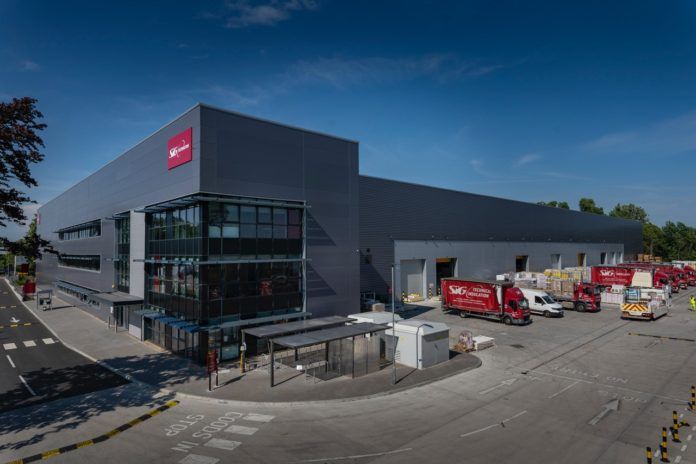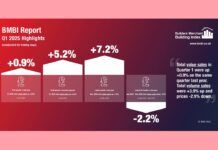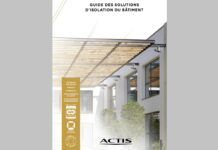SIG has focused on its Scope 3 emissions for the first time in its new 2022 and 2023 sustainability performance report, where it outlines how it will use its position within the industry to support measures to reduce these, while simultaneously driving down emissions from its own business operations.
The starting point to reaching SIG’s goal of being a zero carbon business by 2035 has been tackling Scope 1 and 2 emissions, which the organisation has direct control over and has reduced 19% compared to the 2021 baseline, according to the report.
Transport is the largest contributor and a focus on introducing electric vehicles and HVO-fuelled lorries is having a significant impact. Improved telemetrics and route planning to cut the number of miles travelled is further reducing emissions in this key area.
Monitoring and reducing the energy consumption of every branch and warehouse is also making an impact, the products distributor said, and awareness programmes ensure that every individual within the business understands how their actions can contribute.
The business is now turning its attention to Scope 3 emissions that account for 97% of the total carbon emissions associated with SIG’s business operations.
Sitting at the centre of the supply chain, SIG is well positioned to partner with both suppliers and customers. The organisation is actively encouraging suppliers to produce Environmental Product Declarations, outlining the embodied carbon within their product range – SIG will be collating this information within its SIG Assured programme to make the data easily accessible for customers.
Lorna Stork, environmental, sustainability and governance director, said: “As a distributor, it is perhaps not surprising that the vast majority of carbon emissions associated with our business come under the heading of Scope 3.”
“These emissions are beyond our direct control, but are absolutely our business. Only through effective partnering and a joined-up commitment to carbon reduction will the construction sector be able to deliver meaningful progress towards a zero carbon future. As we progress through 2024, we continue a relentless focus on understanding what it takes to be a zero carbon business and implementing proactive programmes to improve performance on every part of the process.”




